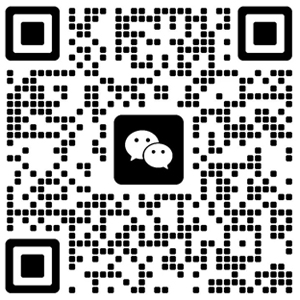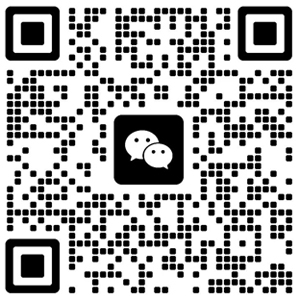雅思考試生病_雅思考試生病退款退全額嗎
雅思考試生病_雅思考試生病退款退全額嗎
我很了解雅思考試生病這個(gè)話題,并且可以為您提供一系列的信息和建議。請(qǐng)告訴我您需要了解什么。
文章目錄列表:
1.2019年雅思作文熱門話題一覽表2.雅思聽力冠詞盤點(diǎn)不定冠詞+定冠詞+零冠詞
3.雅思退考過了退考時(shí)間了,于是我弄了骨折的病歷、診斷證明、ct報(bào)告、化驗(yàn)單、掛號(hào)單、繳費(fèi)單,是北京一
4.求助,我不知道雅思退款申請(qǐng)表怎么填
5.雅思口語考試:1000句最常用的英語口語(3)

2019年雅思作文熱門話題一覽表
作文話題多變靈活,那么雅思作文有哪些好的話題呢?這是很多出國人士感興趣的話題,和一起來看看2019年雅思作文熱門話題一覽表!歡迎閱讀。
雅思寫作話題一:Travel
Topic: It is not necessary to travel to other places to learn about other cultures. We can learn as much as from books, films and the internet. To what extent do you agree or disagree? (2017/10/6)
Agree:
社交媒體發(fā)達(dá),信息更新很快,人們可以從網(wǎng)上書上獲得更多相關(guān)信息(access more infomration)
更加方便節(jié)省時(shí)間(be more convenient and efficient)
書,**網(wǎng)絡(luò)可以幫助你從不同視角(different perspectives)了解當(dāng)?shù)匚幕芏嗍锹每徒佑|不到的
Disagree:
很難和當(dāng)?shù)厝私嚯x接觸 深入了解當(dāng)?shù)氐纳睿H身體驗(yàn)
書本和**只能展現(xiàn)一部分,并且有一些作者的主觀想法,可能會(huì)有一些偏見。
PS:現(xiàn)在各式各樣真人秀,旅行類節(jié)目也非常多,在空閑的時(shí)間可以 “侶行 ” “極限情侶”張昕宇、梁紅打造的首檔網(wǎng)絡(luò)自制戶外真人秀節(jié)目,通過鏡頭看世界也是一種很好的了解世界。除此之外,“越野路書”也是一檔超級(jí)贊的越野類節(jié)目。對(duì)公路旅行感興趣的同學(xué)可以在課余時(shí)間去了解一下。
Technology
In some countries, the widespread use of the Internet has given people more freedom to work or study at home, instead of traveling to work or college. Do the advantages outweigh disadvantages? (2017/9/30)
Advantages:
對(duì)于大部分人來說更加方便(be more convenient),效率也更高
更加靈活,可以平衡工作和家庭生活(balance work and family life)
Disadvantages:
缺少和朋友,同事面對(duì)面溝通的機(jī)會(huì)(lack of the opportunity to communicate with others)
長時(shí)間久坐不動(dòng)(lead a sedentary lifestyle),對(duì)身體不好(have detrimental effects on one’s health)
PS: 現(xiàn)在很多人會(huì)選擇遠(yuǎn)程辦公,尤其是年輕人,這種辦公方式被認(rèn)為更加省時(shí)高效,彈性也更大。不僅如此,也是一種更加低碳,節(jié)約辦公室租金,以及降低離職率的好方法。員工自主性也更強(qiáng),為了提高工作效率也會(huì)自主選擇辦公場地,可以是家里,可以是咖啡店,可以是某個(gè)農(nóng)村的小院子,和家人朋友在一起。
雅思寫作話題二:Health
Some people think that governments should care about their citizens’ diet and health. Others think that people themselves should take responsibility for their own diets and health. Discuss both views and give your own opinion. (2017/9/21)
Governments should care:
很多人意識(shí)不到這些問題,政府采取措施,可以更好的規(guī)范人們的行為(regulate one’s misbehavior)
people themselves should care:
人們根據(jù)自己的飲食習(xí)慣,生活方式進(jìn)行調(diào)整,更加開心健康
雅思寫作話題三:Work
People change their jobs and place of residence several times during life. Is this a positive or negative development? (2017/9/16)
Positive:
可以有更多的機(jī)會(huì) 認(rèn)識(shí)更多的朋友,擴(kuò)大社交圈
換新的住所可以有更多的生活體驗(yàn) 了解不同的文化(have a better understanding of different cultures)
Negative:
經(jīng)常性換地方可能會(huì)缺乏歸屬感(sense of belonging)
Disagree:
理論知識(shí)可以作為很多職業(yè)學(xué)科的敲門磚(stepping stone for some career)
Cities
Living in big cities is bad for health. Do you agree or disagree? (2017/6/3)
Agree:
城市生活壓力很大(live under high pressure),人們會(huì)感到很累
城市污染比較嚴(yán)重,有一些環(huán)境問題(environmental issues)
Disagree:
城市里食物種類更豐富 營養(yǎng)均衡 更有利于身體健康
城市里醫(yī)療設(shè)施更加先進(jìn),當(dāng)人們生病的時(shí)候 可以被治愈
雅思寫作話題四:Education
Some people believe that digital books will replace real ones, but other people think print books still play an important role in our life. Discuss both sides and five your opinions.
digital books:
更加便于攜帶,更加方便
更新更快一些,可以讀到更多的書(read more books)
print books:
更加便于收藏保留
Education
Many young people leave school with negative attitudes towards learning why?reason? how to encourage positive attitude (2017/3/4)
Reasons:
學(xué)校教授的內(nèi)容和社會(huì)現(xiàn)實(shí)生活有比較大的差別(gap between the real world and school life)
學(xué)校的知識(shí)比較單調(diào)枯燥(dull and monotonous)
Positive attitude:
把學(xué)校的知識(shí)與實(shí)踐相結(jié)合,多組織一些活動(dòng)
提高教學(xué)質(zhì)量
處在不同階段的同學(xué)的雅思寫作備考建議:
Level1:
沒有進(jìn)行過動(dòng)筆練習(xí)的同學(xué),非常危險(xiǎn),很有可能考場上寫不完,不要抱有僥幸心理,覺得“車到山前必有路” 上考場自然能寫出來。這樣無異于裸考,不進(jìn)行寫作練習(xí),只是單純看別人的思路,很難完成一篇高質(zhì)量的作文,分?jǐn)?shù)絕對(duì)不會(huì)高,對(duì)于這類同學(xué),現(xiàn)在最主要的任務(wù),就是趕緊動(dòng)筆進(jìn)行練習(xí),不要害怕。
Level2:
已經(jīng)上過一些課并且練習(xí)過一段時(shí)間的同學(xué),這個(gè)階段要進(jìn)行查漏補(bǔ)缺,先把自己寫過的題目列出來,看看哪種類型沒有練習(xí)過,以及列出語法問題,避免相同的問題再次出現(xiàn)。初次之外,也可以自己進(jìn)行限時(shí)寫作練習(xí),并找老師或者水平比你高的同學(xué)進(jìn)行批改,避免同樣的問題再次出現(xiàn)。
Level3:
若已經(jīng)練習(xí)過10篇左右大作文,對(duì)于思路沒有太多問題的同學(xué),比較建議同學(xué)們關(guān)注一下之前歷年考試機(jī)經(jīng),抽時(shí)間想一下思路,列提綱,積累話題詞匯。
以上是我整理的雅思作文,謝謝瀏覽。
雅思聽力冠詞盤點(diǎn)不定冠詞+定冠詞+零冠詞
雅思聽力冠詞盤點(diǎn)不定冠詞+定冠詞+零冠詞
不定冠詞:
1. a用于輔音發(fā)音開頭的詞前, 如:a book; an用于元音發(fā)音開頭的詞前,如:an apple, an hour. 請(qǐng)區(qū)別:a useful machine, an umbrella, a “u”, an “h”。
1. a/an 用于單數(shù)可數(shù)名詞前。
a book a boy a man a bird a dog an hour
an interesting book a big dog a dangerous aminal
練習(xí) 判斷正誤:
a story( ) a bread ( ) a paper( ) a bag( )
a pretty woman( ) a school ( ) a useful book ( )
2.表示類別:這種用法是指某人或某物屬于某一種類,或者指某一種類的人或物中的任何一個(gè)或一件,或者指某一種類的人或物,但不具體說明是何人或何物。 例如:
That is a pen, not a pencil. 那是鋼筆而不是鉛筆。(指屬于某一種類)
Give him a pear, please! 請(qǐng)給他一個(gè)梨。(指某一種類中的任何一個(gè))
Listen! A boy is singing in the classroom.
3.和 one 的區(qū)別: a/an 表示類別 種類 One 強(qiáng)調(diào)數(shù)量
a bus (表示是一輛公交車 而不是一輛小汽車 也不是火車)
one bus (強(qiáng)調(diào)是一輛車 而不是兩輛或三輛)
There is a cat under the chair. 椅子下面有一只貓。(強(qiáng)調(diào)種類)
There is one cat under the chair.椅子下邊有一只貓。(強(qiáng)調(diào)數(shù)量)
4. 表示基本單位,作“每一”講。例如:three times a day, 10 yuan a kilo
six class a day thirty miles an hour等。
定冠詞:
一: the 表示特指。表示名詞所指的人或事物是同類中的特定的一個(gè),以別于同類中其他的人或事物,相當(dāng)于漢語中的“那個(gè)”或“這個(gè)”的意思。
the book in my bag the boy under the tree
the apples in the basket the hospital near my home
二:可以和單、復(fù)數(shù)名詞,也可以和不可數(shù)的名詞連用。
the books the book the rice the bread the football
the old man the interesting book the teachers the women
三:用法:
1). 定冠詞的最基本的用法是“特指”:表示某個(gè)或某些特定的人或物。
Do you know the girl in a red skirt? 你認(rèn)識(shí)那個(gè)穿紅裙子的女孩嗎?
Beijing is the capital of China. 北京是中國的首都。
2). 再次提到上文提到過的人或物,應(yīng)該用定冠詞the。例如:
Tom has an apple, The apple is big and red.
There is a boy under the tree.The boy is my brother.
3). 指談話雙方都知道的人或物。例如:
Let’s go and give it to the teacher.咱們?nèi)グ阉唤o老師吧。
Open the door,please!請(qǐng)打開門。
4). 用于某些固定詞組中。 例如:
in the morning / afternoon / evening 等。
5). 用在形容詞前表示一類人。
the old 老人 the young 年輕人the rich富裕的人
the poor_________ the deaf __________ the blind____________
6). 用在表示“姓”的復(fù)數(shù)名詞前,表示一家人或夫婦二人。 例如:
The Whites are spending their holiday in England.
The Greens came to China two years ago .
7). 用在由普通名詞構(gòu)成的表示場所的專有名詞前。
the Great Wall 長城 the Summer Place頤和園
the United States 美國 the October Revolution 十月革命
the Chinese People’s Liberation Army 中國人民解放軍
the Long March 長征
8).用在序數(shù)詞或形容詞最高級(jí)前
The first thing I want to say is to listen carefully in class.
He is the tallest one in our class.
9).世界上獨(dú)一無二的事物等(月亮、地球、天空、宇宙)
the globe太陽系 the universe 宇宙 the atmosphere大氣層
The sun rises in the east.
The earth goes round the sun.
10).在世紀(jì),年代名詞前用冠詞。
in the 1980s 或 in the 1980’s 20世紀(jì)80年代
in the nineteenth century 二十世紀(jì)
11).在江河、山脈、湖泊、海洋、群島、海峽、海灣運(yùn)河前用the。
the Changjang River 長江
the West Lake 西湖 the Pacific Ocean 太平洋
12).在介詞 短語 中常用定冠詞the,如:in the box ,behind the chair。
13).不能用定冠詞the的幾個(gè)方面:
(1)在節(jié)日、星期、月份、季節(jié)、年等詞前不用冠詞。如:in summer, in August 請(qǐng)區(qū)別:in the spring of 1945. (這里表示特指,故加the)
(2)一日三餐和 球類運(yùn)動(dòng) 名不用冠詞。如:have breakfast ,play football
(3)一些固定詞組中,如:go to bed ,go to school, by bus ,at night.
14).在有些詞組中,有冠詞和無冠詞意思不同,請(qǐng)注意區(qū)別:
in front of 在…前面, in the front of 在…范圍內(nèi)的前部
in hospital (生病)住院, in the hospital 在醫(yī)院里。
零冠詞:
一:所謂零冠詞,即指不使用冠詞的情況:
二:用法:
1)在物質(zhì)名詞,抽象名詞前不用冠詞
The desk is made of wood.
What is work? Work is struggle
2)國名,人名前通常不用定冠詞:
England, China Mary Lilei Mr.Green
3). 在星期、月份,季節(jié)等名詞前;Sunday March summer winter
4)名詞前有物主代詞,指示代詞,不定代詞,名詞所有格修飾時(shí)(this, my,that, those, these, her)
如:this morning my pen your watch whose bike 等
5) 在球類運(yùn)動(dòng)、一日三餐、學(xué)科和語言的名詞前如:
have breakfast play chess play basketball
(注意 在樂器前必須加定冠詞 如彈鋼琴play the piano play the violin)
6)當(dāng)by 與火車等交通工具連用,表示一種方式時(shí),中間無冠詞;
by bus by train by car by air by bike by plane
(注意 如果用介詞on 表示乘坐交通工具 必須用a 或an 來表示 如 in a bus on a bike 等)
7)有些個(gè)體名詞不用冠詞;如:
school,college,prison,market,hospital,bed,table,class,town,church,court 等個(gè)體名詞,直接置于介詞后,表示該名詞的深層含義;
go to hospital 去醫(yī)院看病
go to the hospital 去醫(yī)院 (并不是去看病,而是有其他目的)
雅思聽力易混淆詞匯應(yīng)當(dāng)怎樣處理
雅思聽力易混淆詞匯——常見 同義詞 ,句型替換:
? 1. 提前 in advance=ahead of time=before…
? 2. 最大/最小 maximum=up to=at most=no more than minimum=start from/at=at least=no less than
? 3. 預(yù)定 book=order=reserve (reservation)
? 4. 食堂 cafeteria=dining room/hall=canteen
? 5. 茶點(diǎn),餐點(diǎn) drink and food=diet=refreshment=hospitality
? 6. 把…視為… regard…as=view…as
? 7. 入口 entrance=access
? 8. 注冊(cè) enrol(l)=register
? 9. 科目/課程 course=subject=item=discipline=curriculum
? 10. 優(yōu)點(diǎn)(n.)advantage=strong point=strength=merit=edge=predominance=positive aspect
? 11. 缺點(diǎn)(n.)disadvantage=weak point=weakness=demerit=negative point=shortcoming=drawbacks=flaw
? 12. 重要的 important/significant/essential/basical/fundamental/critical/crucial/vital
? 13. 危險(xiǎn) danger/hazard/threat/risk
? 14. 種類 kind/sort/type/species/category/classification
? 15. BA→ A of B e.g. local history book →the book of local history
? 16. 同一個(gè)單詞不同詞性的轉(zhuǎn)換
? 17. 主動(dòng)被動(dòng)句式的轉(zhuǎn)換
雅思聽力易混淆詞匯——雅思聽力多種發(fā)音的單詞:
? 1. adult 2. schedule 3. data 4. garage
? 1. access 2. principal 3. vocation 4. desert
assess principle vacation dessert
1. 政府 2. 環(huán)境 3. 押金 4. 論據(jù) 5. 樂器
雅思聽力易混淆詞匯的突破點(diǎn):
? 1. 核心詞匯背誦 (王陸807聽力詞匯或者解析中整理出來的詞匯)
? 2.同義詞,短語及句型替換 總結(jié)
? 3. 準(zhǔn)確把握信號(hào)詞,短語和 句子
? 4. 精聽練習(xí)
? 5. 良好的應(yīng)考狀態(tài)
雅思聽力的提高五大要點(diǎn)解讀
首先,雅思聽力提高要點(diǎn)必須要建立在一定的詞匯和語法基礎(chǔ)上。
掌握至少相當(dāng)于大學(xué)英語四級(jí)的詞匯量是保證雅思考好的必要條件。不僅要會(huì)辨認(rèn)這些詞匯,還要能夠拼寫。雅思聽力部分所要求的語法并不太難,初高中語法足以應(yīng)付。如果沒有足夠的詞匯和基本的語法知識(shí),很多答案即使能聽出來,但也可能由于知識(shí)的不牢固而答不出來。
其次,雅思聽力提高要點(diǎn)要注意語音的鍛煉。
聽力歸根到底實(shí)際上是辨音的過程。如果考生本人的發(fā)音和標(biāo)準(zhǔn)發(fā)音有差距,那么一定要下苦功夫糾正自己的發(fā)音。
第三,雅思聽力提高要點(diǎn)要熟悉口語句子結(jié)構(gòu)。
熟練掌握常見的日常用語和句型,結(jié)合語法部分的準(zhǔn)備,形成一定的條件反射,有助于提高對(duì)會(huì)話和演講語言的敏感程度。
第四,雅思聽力提高要點(diǎn)堅(jiān)持練習(xí)聽寫的能力。
考生在聽力過程中所反映的一個(gè)主要問題是,很多內(nèi)容好像是聽到了,但馬上又忘記了。雅思聽力考試需要聽與寫同時(shí)進(jìn)行。聽到了,卻又記不下來,等于沒聽到。
最后,雅思聽力提高要點(diǎn)注意精聽和泛聽的結(jié)合。
除了每天堅(jiān)持精聽針對(duì)性比較強(qiáng)的材料外,還要做大量的泛聽練習(xí)。既要保證質(zhì)的飛躍,也要保證量的積累。
雅思聽力冠詞盤點(diǎn)不定冠詞+定冠詞+零冠詞相關(guān) 文章 :
★ 英語冠詞:不定冠詞,定冠詞種類
★ 英語語法學(xué)習(xí):零冠詞的情況
★ 英語不定冠詞語法:哪些不用冠詞場合(一)
★ 不定冠詞和定冠詞的用法分析
★ 關(guān)于英語中冠詞的用法
★ 小學(xué)英語語法:冠詞的用法
★ 冠詞的用法總結(jié)大全
★ 2020小升初英語必考不定冠詞a和an
★ 冠詞語法講解及練習(xí)題
★ 一句話學(xué)英語:定冠詞the
雅思退考過了退考時(shí)間了,于是我弄了骨折的病歷、診斷證明、ct報(bào)告、化驗(yàn)單、掛號(hào)單、繳費(fèi)單,是北京一
我可以開,病假直接開就可以,沒有生病也可以,正當(dāng)手段,不找關(guān)系,可以的,直接是代著的開,方法很多,因人而異,不是難事,醫(yī)院、時(shí)間都是靈活的,關(guān)鍵在于病情與休假的天數(shù)要合理,也就是醫(yī)囑要合理描述
求助,我不知道雅思退款申請(qǐng)表怎么填
1.姓名:不用說了,填寫你自己的姓名;
2.NEEA ID:這個(gè)是填寫你在雅思網(wǎng)上報(bào)名時(shí),系統(tǒng)提供給你的用戶名(不是考試確認(rèn)信上的考號(hào));
3.聯(lián)系電話:不用多說,填上可以聯(lián)系上你的電話(千萬不要提供停機(jī)的號(hào)碼哦!)
4.有效身份證件復(fù)印件:把你的身份證復(fù)印后(如果是二代身份證請(qǐng)正反面都復(fù)印)貼在這欄中。(貼不下整張的,請(qǐng)剪切合適的大小粘貼)
5.退款原因:填寫不考試的原因,這個(gè)什么理由都可以,考試中心都會(huì)退費(fèi)的。考生多數(shù)寫的是“不考了”或者是“生病”、“考試時(shí)間沖突”等。大家可以根據(jù)自己的實(shí)際情況填寫。
6.考費(fèi)的支付方式:這里一定要看明白,因?yàn)榇蠹业母犊罘绞讲煌荚囐M(fèi)用存入的時(shí)間也不同。 如果選擇銀行卡支付,必須是考生報(bào)名時(shí)使用銀行卡,考試中心按照之前報(bào)名的付費(fèi)方式退費(fèi)。如果你當(dāng)時(shí)使用的是銀行卡,由于某些原因不想退回銀行卡里,需要填寫下面的通信地址,考試中心會(huì)以郵政匯款形式退費(fèi)。如果你是電匯支付,是不能退費(fèi)到你的銀行卡里的,這里一定要注意。
7.通信地址及郵編:如果填寫此項(xiàng),考試中心都會(huì)以郵政匯款形式退費(fèi)。
8.考生簽名:請(qǐng)?zhí)钌仙暾?qǐng)人的名字,要寫考生的姓名,很多家長替考生辦理寫上自己的名字,這是不行的。
最后需要提醒大家的是:
申請(qǐng)完畢后,一定要和北京的考試中心聯(lián)系確認(rèn),對(duì)方收到你的傳真或者是E-mail,不然申請(qǐng)是不成功的。還有就是申請(qǐng)退費(fèi)一定要在考試報(bào)名截止日期前進(jìn)行,不然就不能退了。退考的考生將于發(fā)送退款申請(qǐng)后4至6周左右收到退費(fèi),請(qǐng)大家耐心等待。
雅思口語考試:1000句最常用的英語口語(3)
本文來自雅思口語網(wǎng)liuxue86.com《1000句最常用的英語口語(3)》。 501. You'd better look before you leap. 你最好三思而后行。
502. You know what I'm talking about. 我想你知道我在說什么。
503. He has been sick for three weeks. 他已經(jīng)病了幾周了。
504. He inspected the car for defects. 他詳細(xì)檢查車子有無效障。
505. I count you as one of my friends 我把你算作我的一個(gè)朋友。
506. I go to school by bike every day. 我每天騎自行車上學(xué)。
507. I have a large collection of CDs. 我收集了很多唱片。
508. I won't be able to see him today. 今天我不可能去看他。
509. I'll call a taxi in case of need. 如果需要的話,我會(huì)叫出租車的。
510. Is there any sugar in the bottle? 瓶子里還有糖嗎?
511. It's a secret between you and me. 這是你我之間的秘密。
512. It's very kind of you to help me. 你幫助我真是太好了。
513. Let's divide the cake into three. 我們將蛋糕分成三份吧。
514. Patience is a mark of confidence. 耐心是自信心的一種表現(xiàn)。
515. Susan is going to finish college. 蘇珊將完成大學(xué)學(xué)業(yè)。
516. That is my idea about friendship. 這是我關(guān)于友誼的看法。
517. The book you ask for is sold out. 你要的那本書已經(jīng)售完了。
518. The boy was too nervous to speak. 那男孩緊張得說不出話來。
519. The play may begin at any moment. 戲隨時(shí)都有可能開始。
520. The salve will heal slight burns. 這種藥膏能治療輕微燒傷。
521. The sea sparkled in the sunlight. 陽光下,大海波光粼粼。
522. The teacher tested us in English. 老師用英文考我們。
523. There is a bridge over the river. 河上有一座橋。
524. They rode their respective bikes. 他們各自騎著自己的自行車。
525. They will arrive in half an hour. 他們將于半小時(shí)之內(nèi)到達(dá)。
526. Time is more valuable than money. 時(shí)間比金錢寶貴。
527. We are all in favor of this plan. 我們都贊同這項(xiàng)計(jì)劃。
528. We reached London this afternoon. 我們是今天下午到達(dá)倫敦的。
529. We two finished a bottle of wine. 我倆喝完了一瓶酒。
530. what a lovely little girl she is! 她是一個(gè)多么可愛的小女孩耶!
531. Will you pick me up at my place? 你能到我的住處來接我嗎?
532. You may choose whatever you like. 你可以喜歡什么就選什么。
533. You're suffering from an allergy? 你過敏嗎?
534. Beyond all questions you are right. 毫無疑問,你是對(duì)的。
535. But I plan to weed the yard today. 我計(jì)劃今天除院子里的草。
536. But who will do all the house work? 但是這些家務(wù)活誰來做呢?
537. Close the door after you,please. 請(qǐng)隨手關(guān)門。
538. Come to see me whenever you like。 你可以隨時(shí)來見我。
539. Don't pull the chairs about,boys! 不要把椅子拖來拖去,孩子們!
540. He drives more carefully than you. 他開車比你小心。
541. He invited me to dinner yesterday. 他昨天請(qǐng)我吃晚飯了。
預(yù)祝您雅思口語更上一層樓,感謝您閱讀《1000句最常用的英語口語(3)》一文.本文來自雅思口語網(wǎng)liuxue86.com《1000句最常用的英語口語(3)》。
542. He struck his attacker on the ear. 他打了那個(gè)攻擊者一耳光。
543. He suddenly appeared in the party. 他突然在晚會(huì)上出現(xiàn)了。
544. Her handbag goes with her clothes. 她的手袋和她的衣服很搭配。
545. Here we are.Row M, seats l and 3. 哦,到了。M排,l號(hào)和3號(hào)。
546. His boss might get angry with him. 他的老板也許會(huì)生他的氣。
547. I expect to be there this evening. 我打算今天晚上到那兒去。
548. I really need to lose some weight. 我真的需要減肥了。
549. I think you have the Wrong number. 我想你打錯(cuò)號(hào)碼了。
550. I would rather stay at home alone. 我寧愿獨(dú)自呆在家。
551. I'd like to look at some sweaters. 我想看看毛衣。
552. Its origin is still a mystery now. 它的起源至今仍是個(gè)謎。
553. Money is no more than our servant. 金錢不過是我們的仆人。
554. Once you begin,you must continue. 一旦開始,你就得繼續(xù)。
555. She is poor but quite respectable. 她雖窮,人品卻很端正。
556. She spent a lot of money on books. 她花了很多錢來買書。
557. The girl in red is his girlfriend. 穿紅衣服的那個(gè)女孩是他的女朋友。
558. There is a chair below the window. 窗戶下面有一把椅子。
559. They employed him as a consultant. 他們雇用他為顧問。
560. To be honest with you,I'm twenty. 老實(shí)說,我20歲。
561. We often call him by his nickname. 我們經(jīng)常叫他的綽號(hào)。
562. Will you be free tomorrow evening? 你明晚有空嗎?
563. Would you like to leave a message?
562. Will you be free tomorrow evening? 你明晚有空嗎?
563. Would you like to leave a message? 你要留話嗎?
564. You can never turn the clock back. 時(shí)光不能倒流。
565. You may as well tell me the truth. 你還是把事實(shí)告訴我為好。
566. Are your grandparents still living? 你的祖父母還在么?
567. Can you recognize that woman,Mary? 你能認(rèn)出那個(gè)女人是誰了嗎,瑪麗?
568. Do you have any suggestions for me? 你對(duì)我有什么建議么?
569. He is tough,but I am even tougher. 他是一個(gè)硬漢子,不過我要比他更硬。
570. He made his way through the forest. 他設(shè)法穿過了森林。
571. He suggests you leave here at once. 他建議你立刻離開這兒。
572. He was married to a friend of mine. 他和我的一個(gè)朋友結(jié)了婚。
573. He will blame you for carelessness. 他會(huì)責(zé)備你的粗心大意。
574. I can give you a number of excuses. 我可以給你說出很多韻理由。
575. I don't doubt that he will help me. 我不懷疑他會(huì)援助我。
576. I hope you enjoy your stay with us. 希望您在這兒過的愉快。
577. I'd like to-repair our differences. 我愿意消除一下我們之間的分歧。
578. It's nothing to be surprised about. 這事不值得大驚小怪。
579. It's rude to stare at other people. 盯著別人看是不禮貌的。
預(yù)祝您雅思口語更上一層樓,感謝您閱讀《1000句最常用的英語口語(3)》一文.本文來自雅思口語網(wǎng)liuxue86.com《1000句最常用的英語口語(3)》。
580. Bob has always had a crush on Lucy. 鮑伯一直在愛著露茜。
581. Let's take a short break for lunch. 讓我們休息一會(huì)兒,去吃午飯。
582. Linda speaks as if she were a boss. 琳達(dá)說話總好象她是老板。
583. She became more and more beautiful. 她變得越來越漂亮了。
584. Suppose it rains,what shall we do? 萬一下雨,我們?cè)撛趺崔k?
585. The book is protected by copyright. 該書受版權(quán)保護(hù)。
586. The ice is hard enough to skate on. 冰已經(jīng)厚得可以劃冰了。
587. The price includes postage charges. 價(jià)格包括郵資在內(nèi)。
588. This is a little something for you. 這是我給你們的一點(diǎn)心意。
589. What he likes best is making jokes. 他最喜歡開玩笑。
590. Who but Jack would do such a thing? 除了杰克誰會(huì)做這種事呢?
591. You should have a mind of your own. 你必須有自己的主見。
592. You will soon get used to the work. 你很快就會(huì)習(xí)慣于這項(xiàng)工作的。
593. Columbus discovered America in l492. 哥倫布于1492年發(fā)現(xiàn)了美洲。
594. God helps those who he1p themselves. 上帝幫助那些自己幫自己的人。
595. He has a nice sum of money put away. 他存了一大筆錢。
596. He is heavily insured against death. 他給自己投了巨額的人身保險(xiǎn)。
597. He used to learn everything by rote. 他過去總是死記硬背。
598. He's a terrible man when he's angry. 他生氣的時(shí)候很可怕。
599. I am on my way to the grocery store. 我正在去雜貨店的路上。
600. I am sick of always waiting for you! 你,老讓我等你,真是煩透了。
601. I appreciate John's helping in time. 我感謝約翰的及時(shí)幫助。
602. I bought it the day it was released. 它發(fā)行的當(dāng)天我就買了。
603. I doubted whether the story is true. 我懷疑那故事是不是真的。
604. I learnt that I had passed the test. 我獲悉我測驗(yàn)及格了。
605. I will seek from my doctor's advice. 我將請(qǐng)教醫(yī)生的意見。
606. Ice cream is popular among children. 冰淇淋深受孩子們的歡迎。
607. I'd like to get this film developed. 我要沖洗這卷膠卷。
608. In a word,I am tired of everything. 總之,我對(duì)一切都很厭倦。
609. Let us do it by ourselves,will you? 我們自己做這件事,可以嗎?
610. May I know the quantity you require? 請(qǐng)問你們需要多少數(shù)量的貨物?
611. Nobody has ever solved this problem. 沒有人曾解決過這個(gè)問題。
612. Our school covers 100 square meters. 我們學(xué)校占地面積平方米。
613. People enjoyed the stamps very much. 人們非常喜愛這些郵票。
614. The editor over looked a print error. 這位我漏掉了一個(gè)印刷錯(cuò)誤。
615. The sudden barking frightened Clara. 突然的狗叫聲嚇壞了克拉拉。
616. The teams are coming onto the field. 隊(duì)員們都進(jìn)場了。
617. There is a mark of ink on his shirt. 他的襯衣上有一塊墨跡。
預(yù)祝您雅思口語更上一層樓,感謝您閱讀《1000句最常用的英語口語(3)》一文.本文來自雅思口語網(wǎng)liuxue86.com《1000句最常用的英語口語(3)》。
618. There isn't any water in the bottle. 瓶子里一點(diǎn)水也沒有。
619. This joke has gone a little too far. 這個(gè)玩笑開得有點(diǎn)-過分了。
620. We arrived in London this afternoon。 我們是今天下午到達(dá)倫敦的。
621. We can't go out because of the rain. 我們不能出去因?yàn)橄掠炅恕?
622. We should make good use of our time. 我們應(yīng)該充分利用我們的時(shí)間。
623. We should save unnecessary expenses.我們應(yīng)節(jié)省不必要的開支。
624. You may have heard of Birth Control.你們也許聽說過控制人口出生的措施。
625. After a pause he continued his story.停頓一下之后他繼續(xù)說他的。
626. As you know, I am a very kind person. 你知道,我是個(gè)很和善的人。
627. He dare not tell us his evil conduct.他不敢告訴我們他的惡行。
628. I can express myself in good English. 我可以用很好的英語來表達(dá)自己的觀點(diǎn)。
629. I'll furnish my house with furniture. 我要為我的房子置辦家具。
630. It seemed as if there was no way out. 看情形似乎沒有出路了。
631. It's the hottest day I've had so far. 這是迄今為止我經(jīng)歷的最熱的一天。
632. Mr. Smith is in charge of this class. 史密斯老師負(fù)責(zé)該班。
633. Mr. Smith taught English at a school. 史密斯先生在一所學(xué)校教英語。
634. None of us is of difficulties.我們當(dāng)中沒有一個(gè)人害怕困難。
635. Our school is in the east of Beijing. 我們學(xué)校在北京的東部。
636. She really wishes her clock had rung. 她真希望今天早上她的鬧鐘響了。
637. She teaches foreign students Chinese. 她教外國學(xué)生漢語。
638. The question will be settled tonight. 這個(gè)問題將在今晚解決。
639. The weight is too much for my height. 相對(duì)于我的身高來說,體重太重了!
640. There are mice in Mrs. Lee's kitchen! 李太太的廚房里有老鼠!
641. There is no one but hopes to be rich. 沒有人不想發(fā)財(cái)。
642. There'll be some sport reviews on TV. 電視上會(huì)有一些體育評(píng)論。
643. This company is our regular customer. 這家公司是我們的老客戶。
644. This is a good example of his poetry. 這是他詩作的一個(gè)好例子。
645. What we read influences our thinking. 我們所閱讀的書本會(huì)影響我們的思想。
646. Words can't express what I felt then. 無法用語言形容我當(dāng)時(shí)的感受。
647. You really have an ear for pop music. 你確實(shí)對(duì)流行音樂很有欣賞力。
648. A bad workman quarrels with his tools.手藝差的工人總是抱怨工具不好使。
649. Can you adapt yourself to the new job? 你能適應(yīng)新的工作嗎?
650. Does the computer ever make a mistake.? 計(jì)算機(jī)出錯(cuò)嗎?
651. Don't be uneasy about the consequence.不必為后果憂慮不安。
652. Even a child can answer this question.即使小孩兒都能回答這個(gè)問題。
653. He has many strange ideas in his mind. 他腦子里盡足奇思怪想。
預(yù)祝您雅思口語更上一層樓,感謝您閱讀《1000句最常用的英語口語(3)》一文.本文來自雅思口語網(wǎng)liuxue86.com《1000句最常用的英語口語(3)》。
654. He is commonly supposed to be foolish.他是公認(rèn)的傻瓜。
655. He sat with his arms across the chest. 他雙臂交**于胸前的坐在那里。
656. He set up a fine example to all of us. 他為我們樹立了一個(gè)好榜樣。
657. His cake is four times as big as mine. 他的蛋糕是我的四倍大。
658. I do not care whether it rains or not. 我不管天會(huì)不會(huì)下雨。
659. I have a lot in common with my sister. 我和我姐姐有很多相同之處。
660. I haven't even touched your tooth yet. 我還沒有碰到你的牙齒呢。
661. I'm looking forward to a prompt reply.盼迅速答復(fù)。
662. It is an excellent novel in every way. 無論從哪方面來看,這都是一本優(yōu)秀的小說。
663. It is clear that the cat has eaten it!很明顯,是貓偷吃的!
664. Nothing but death can part the couple.除了死之外,什么也拆不散這一對(duì)。
665. Now she looks pale as if she were ill.現(xiàn)在她臉色難看,好像病了一樣。
666. She was injured badly in the accident.她在這次意外中受到重傷。
667. The secret was spread among the crowd.秘密在人群當(dāng)中傳播開來。
668. The two brothers look very much alike. 這兄弟倆看上去很相像。
669. Their interest is listening to others. 他們的興趣是聽別人說話。
670. There was a notice in the supermarket. 超市里有一個(gè)布告。
671. This one cannot compare with that one. 這個(gè)與那個(gè)無法比較。
672. To know everything is to know nothing. 樣樣通,樣樣松。
673. To tell the truth, I don't like disco. 說實(shí)話,我不喜歡迪斯科。
674. True and False have opposite meanings. 真與假含義完全相反。
675. What's the point of going to college? 上大學(xué)有何用?
676. Where can we make the insurance claim? 我們可以在哪里提出保險(xiǎn)賠償?這個(gè)無法與那個(gè)比較。
677. Why don't I pick you up at your house? 為什么不讓我去接你呢?
678. Why don't you attend an aerobic class? 你為什么不去參加一個(gè)有氧健身班呢?
679. You can kill two birds with one stone.一舉兩得。
680. You can't go in no matter who you are. 不管你是誰,都不能進(jìn)去。
681. You should learn these words by heart. 你應(yīng)該把這些詞背熟。
682. Could I have those two tickets, please?這兩張票給我行不行?
683. He has to take care of his sick mother. 他得照顧他生病的母親。
684. He hired a workman to repair the fence.他雇用了一個(gè)工人修理圍墻。
685. I can't make this machine run properly.我無法使這部機(jī)器正常運(yùn)轉(zhuǎn)。
686. I don't know if I'll have the patience.我不知道我有沒有耐心。
687. I don't like what you are saying.我不喜歡你說的話。
688. I fell in love with her at first sight.我第一眼見到她就愛上了她。
689. I have just heard from my sister, Mary.我剛收到我妹妹瑪麗的一封信。
690. If you would only try, you could do it.只要你肯嘗試,你一定能做這件事。
預(yù)祝您雅思口語更上一層樓,感謝您閱讀《1000句最常用的英語口語(3)》一文.本文來自雅思口語網(wǎng)liuxue86.com《1000句最常用的英語口語(3)》。
691. It is no use learning without thinking.學(xué)而不思則惘。
692. It was a lazy, breezy autumn afternoon.這是一個(gè)懶散的,起風(fēng)的秋日下午。
693. Jack is the strongest boy in the class.杰克是全班最強(qiáng)壯的男孩。
694. Please fetch a chair from another room.請(qǐng)到別的房間取一把椅子。
695. The doctor began to operate on the boy.醫(yī)生開始給那個(gè)男孩動(dòng)手術(shù)。
696. The doctor is taking my blood pressure.醫(yī)生正給我量血壓。
697. The machines will not operate properly.那些機(jī)器不能正常運(yùn)轉(zhuǎn)。
698. The students declared against cheating.學(xué)生們表示反對(duì)作弊。
699. There is hope so long as he is with us. 只要他在就有希望。
700. He talks as if he were the head of the office.他說話的口氣像辦公室主任似的。
預(yù)祝您雅思口語更上一層樓,感謝您閱讀《1000句最常用的英語口語(3)》一文.
好了,今天關(guān)于“雅思考試生病”的話題就講到這里了。希望大家能夠?qū)Α把潘伎荚嚿 庇懈钊氲恼J(rèn)識(shí),并從我的回答中得到一些啟示。如果您有任何問題或需要進(jìn)一步的信息,請(qǐng)隨時(shí)告訴我。

請(qǐng)?zhí)砑游⑿盘?hào)咨詢:19071507959
最新更新
推薦閱讀
猜你喜歡
關(guān)注我們


 留學(xué)規(guī)劃
留學(xué)規(guī)劃  留學(xué)考試
留學(xué)考試  留學(xué)指南
留學(xué)指南  留學(xué)攻略
留學(xué)攻略  留學(xué)生活
留學(xué)生活  留學(xué)信息
留學(xué)信息  留學(xué)專業(yè)
留學(xué)專業(yè)  留學(xué)簽證
留學(xué)簽證  關(guān)于我們
關(guān)于我們  網(wǎng)站首頁
網(wǎng)站首頁







